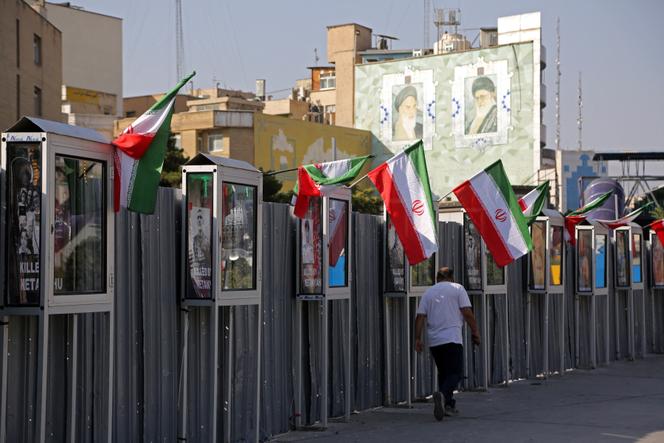


Israel said Saturday, June 21, it had killed three more Iranian commanders in its unprecedented bombing campaign against the Islamic Republic, which Foreign Minister Gideon Saar claimed had delayed Tehran's alleged progress towards a nuclear weapon by two years. Israel's military said a strike in Qom south of Tehran successfully targeted top Iranian official Saeed Izadi, in charge of coordination with Palestinian militant group Hamas, adding two other commanders from Iran's Revolutionary Guards were also killed overnight.
As Israel continued to strike Iran's nuclear facilities and military targets, Saar said in an interview that by his country's own assessment, it had "already delayed for at least two or three years the possibility for them to have a nuclear bomb." Israel "will do everything that we can do there in order to remove this threat," Saar told German newspaper Bild, asserting the onslaught would continue.
Israel and Iran have traded wave after wave of devastating strikes since Israel launched its aerial campaign on June 13, saying Tehran was on the verge of developing a nuclear weapon – an accusation the Islamic Republic has denied. Israel said it had attacked Iran's Isfahan nuclear site for a second time after its air force announced it had also launched salvos against missile storage and launch sites in the center of the country. The army later said it was striking military infrastructure in southwest Iran.
Iran's health ministry on Saturday gave a toll of more than 400 people killed and 3,056 in the Israeli strikes. A US-based NGO, the Human Rights Activists News Agency, said on Friday that based on its sources and media reports at least 657 people have been killed in Iran, including 263 civilians.
Iranian Foreign Minister Abbas Araghchi arrived in Istanbul on Saturday for a meeting of the Organization of Islamic Cooperation to discuss the conflict. Top diplomats from Britain, France and Germany met Araghchi in Geneva on Friday, and urged him to resume talks with the United States that had been derailed by Israel's attacks. But Araghchi told NBC News after the meeting that "we're not prepared to negotiate with them [the United States] anymore, as long as the aggression continues."
US President Donald Trump warned on Friday that Tehran had a "maximum" of two weeks to avoid possible American air strikes, as Washington weighs whether to join Israel's campaign. Trump, dismissive of European diplomatic efforts, also said he was unlikely to ask Israel to stop its attacks to get Iran back to the table. "If somebody's winning, it's a little bit harder to do," he said.
Any US involvement would likely feature powerful bunker-busting bombs that no other country possesses to destroy an underground uranium enrichment facility in Fordo.
Iran's retaliatory strikes have killed at least 25 people in Israel, according to official figures. Overnight, Iran said it targeted central Israel with drones and missiles. Israeli rescuers said there were no casualties after an Iranian drone struck a residential building in Beit She'an.
Israel's National Public Diplomacy Directorate said more than 450 missiles have been fired at the country so far, along with about 400 drones. Iran's Revolutionary Guards said they had targeted military sites and air force bases.
